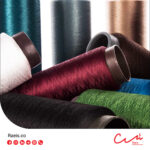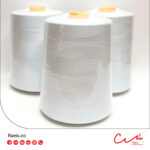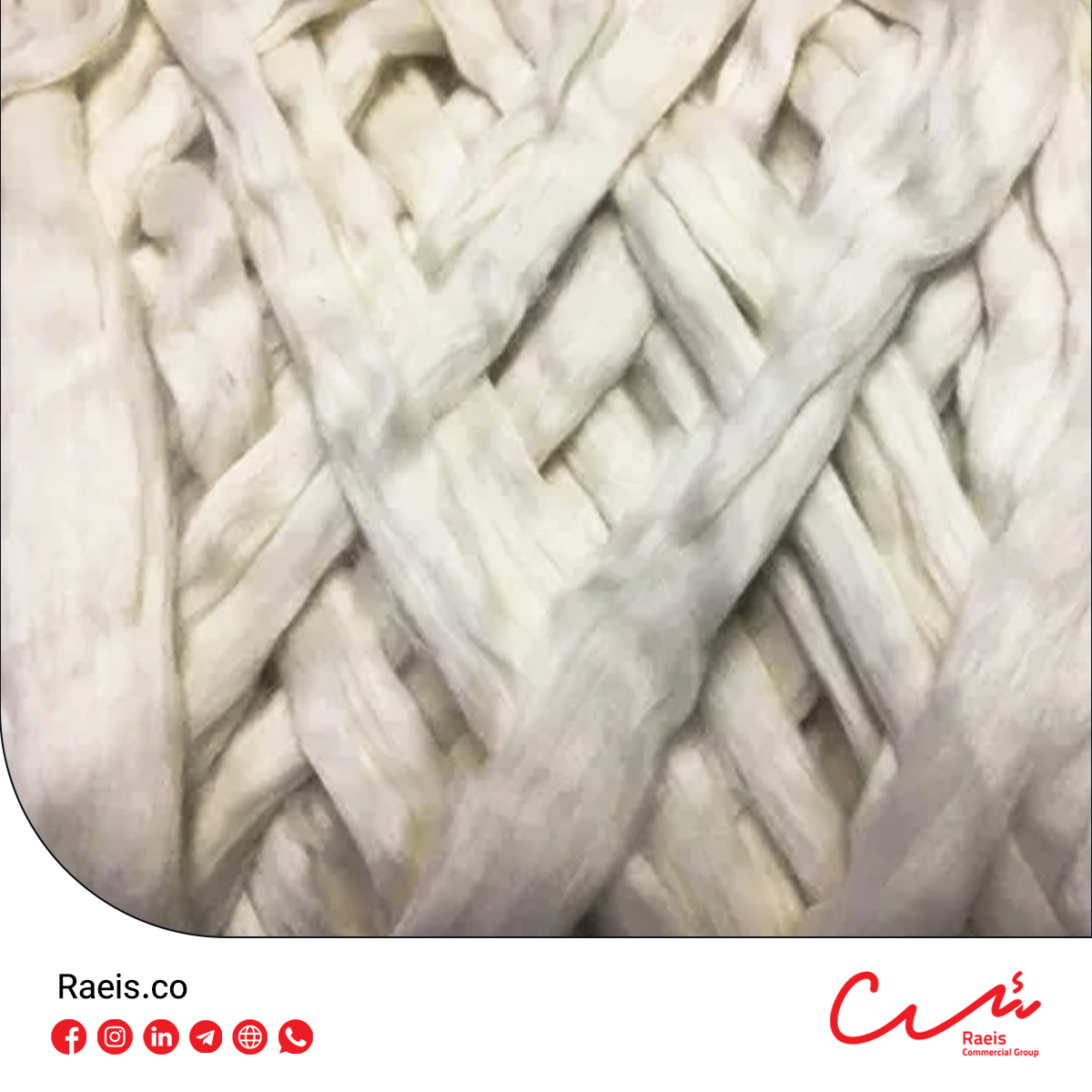Cotton fibers
ارسال رایگان
تحویل اکسپرس و سریع
20 هزار محصول
روش های پرداخت
پشتیبانی 24/7
پشتیبانی نامحدود آنلاین
تحویل 2 روزه
پیگیری سفارشات
Cotton, often referred to as “white gold,” symbolizes softness and delicacy. It is renowned for its unique properties, including high resistance and excellent moisture absorption, which make it a versatile material with numerous applications. Cotton belongs to the category of natural plant fibers and is an essential agricultural product. The cotton plant has distinctive features, such as lobed leaves and white, yellow, or pink flowers, and can sometimes grow up to 3 meters tall.
Cotton harvesting can be performed manually or mechanically. During this process, the cotton bolls (fruits) are separated from the plant and processed in specialized machines to separate the fibers from the seeds. These fibers, initially fluffy, are compressed into rectangular bales and prepared for the market. This article by Raeis Industrial Group delves into the properties, production methods, and applications of this remarkable natural fiber.
About Raeis Industrial Group Company
Established in 2023, Raeis Industrial Group operates with a mission to expand and promote the export of high-quality domestic products, including chemical and mineral materials. Leveraging advanced technologies and innovative methods, the company aims to maintain a competitive presence in today’s global markets.
Properties of Cotton Fibers
Cotton fibers are among the most popular and widely used natural fibers, known for their numerous beneficial properties. Their softness and delicacy are their most prominent features. Cotton fibers typically measure 14 to 35 millimeters in length and 15 to 20 microns in diameter. Their other valuable properties include high moisture absorption, resistance to extreme temperature fluctuations, durability, and tensile strength.
1. High Moisture Absorption
Cotton fibers can absorb up to 8% of their weight in water. Interestingly, as they absorb more water, their tensile strength also increases.
2. High Abrasion Resistance and Hypoallergenic Nature
Cotton fibers are resistant to abrasion and are hypoallergenic, making them suitable for medical applications such as wound cleaning and injections.
3. Heat Resistance
Cotton fibers withstand high temperatures without significant changes. They may discolor slightly at 120°C after prolonged exposure and begin decomposing at temperatures above 150°C.
4. Other Properties
- High tensile strength
- Resistance to frequent washing and wrinkling
- Chemical stability and resistance to acidic or corrosive substances
- High color absorption
- Breathability and excellent ventilation
- Non-static
Applications of Cotton Fibers
Cotton fibers, available in various types such as Pima, Egyptian, Upland, organic, and mercerized, are versatile and widely used across industries. Here are some of their primary applications:
1. Textile and Spinning Industry
The most significant use of cotton fibers is in textiles and spinning. They are used to produce a variety of cotton-based fabrics, such as velvet, denim, and clothing for all age groups. Cotton is also essential in making towels, bed linens, and sleepwear. Its softness, durability, wrinkle resistance, and moisture absorption make it a staple in the textile industry.
2. Medical Industry
Due to their softness, moisture absorption, and hypoallergenic properties, cotton fibers are widely used in the medical field. They are utilized for surgical dressings, wound cleaning, and injections. Medical-grade cotton is processed using specific methods to ensure sterility.
3. Arts and Handicrafts
Cotton fibers are also used to produce various yarns and threads for knitting and crocheting. In traditional crafts, they are employed in rug-making and tapestry weaving. Additionally, dyed cotton fibers are used in artistic and decorative projects.
4. Industrial Applications
Cotton fibers are used to manufacture paper, fishing nets, explosives, sound and thermal insulation materials, and more.
5. Household Applications
Cotton fibers also have domestic uses, such as:
- Odor control in refrigerators
- As a natural air freshener (by adding fragrance to cotton pieces)
- Preventing mold and mildew
- Germinating seeds in damp cotton
Purchasing Cotton Fibers
Cotton fibers are a cornerstone of various industries, thanks to their softness, durability, and other unique properties. Raeis Industrial Group has highlighted the benefits and diverse applications of cotton in this article to assist buyers in making informed decisions. When purchasing cotton fibers, it is essential to consider factors such as quality grade, resistance, cleanliness, and sterility (especially for medical use). Raeis Industrial Group is a trusted source for high-quality cotton fibers and offers reliable purchasing solutions.
Pricing of Cotton Fibers
Price is a critical factor when buying cotton fibers, alongside quality and type. Several variables influence the cost of cotton, including processing methods, plant type, fiber quality, strength grade, market fluctuations, and supply-demand dynamics. For those seeking top-quality cotton fibers at competitive prices, Raeis Industrial Group is an excellent choice. For price inquiries or free consultation, customers can contact Raeis Industrial Group’s expert team.





Reviews
There are no reviews yet.